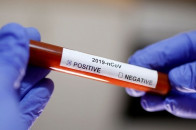Coronavirus — is it time to panic?
Remember, sometimes panic is more dangerous than the virus itself.

PHOTO: REUTERS
So, if masks are not helpful then how do we protect ourselves against this virus? Simple hygiene principles will work. Wash your hands frequently with soap or an alcohol-based hand sanitizer, for at least 20 seconds. Cover your mouth and nose when sneezing and cough into your elbow or a tissue paper which must be properly discarded later. Let’s also not shake hands for some time, and keep frequently-used surfaces clean. Moreover, avoid interacting with sick people; and if you are sick, then wear a mask or stay home.
The reason coronavirus is striking such a fear across the world is because many aspects of it are unknown and scientists are discovering something new every day. But from the known facts, we know that it does not kill like SARS or MERS, which had a fatality rate of 10% and 35%, respectively, but its more infectious than both and can kill more people in total. But what is the fatality rate of the coronavirus? In the beginning of any major outbreak, the initial fatality rate is always higher as doctors focus on the more severe cases and miss the milder ones. Once the milder ones are accounted for, the fatality rate drops. In Wuhan, the epicentre of this outbreak, the fatality rate was almost 5%, and was lower in the Hubei province. Outside China, the fatality rate is 1.5%. But data shows that countries with poor health systems are worse affected (Iran with a fatality rate of 10.6%) in contrast with a developed country like South Korea, where the fatality rate is as low as 0.6% among the 2,000 reported cases. But despite the overall fatality rate being lower than 1%, the virus should not be taken lightly. It’s deadlier for older people or those with pre-existing chronic diseases. My assumption, which is without data, is that Wuhan has a higher fatality rate because people rushed to the hospitals due to the panic of a new disease. Hospitals are known to spread infections further (100,000 die in the US annually due to hospital-acquired infections). In Pakistan, hospitals lack strict infection controls and should be avoided unless necessary. The medical staff that was overworked in Wuhan paid the ultimate price with their lives for this panic. Remember, sometimes panic is more dangerous than the virus itself.
Published in The Express Tribune, March 1st, 2020.
Like Opinion & Editorial on Facebook, follow @ETOpEd on Twitter to receive all updates on all our daily pieces.



















COMMENTS
Comments are moderated and generally will be posted if they are on-topic and not abusive.
For more information, please see our Comments FAQ